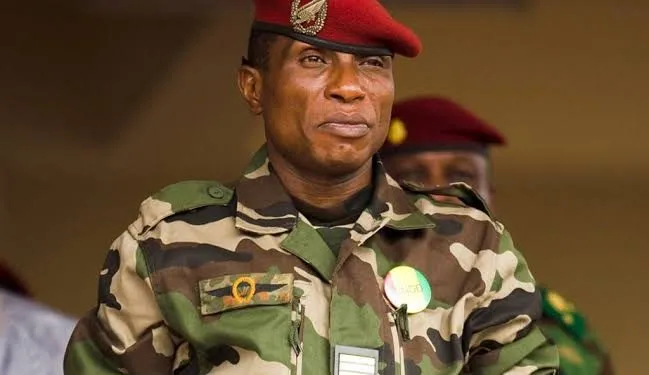Guinea’s former military ruler, Moussa Dadis Camara, has found himself back in jail, under dramatic circumstances that have left many questions unanswered. Camara was reportedly taken from prison by a group of armed men, yesterday morning.
The incident unfolded when the group stormed a prison in Conakry, the capital of Guinea, in the early hours of a Saturday morning. Among those taken were Captain Camara and three others who are currently on trial for their alleged involvement in the deaths of more than 150 people during a 2009 protest.
Camara’s lawyer insisted that the former leader was taken against his will, emphasising that Camara had confidence in the Guinean judicial system and had no intention of escaping prison.
The situation sent shockwaves through the nation, prompting the closure of Guinea’s borders as authorities launched a search for Camara and the other prisoners who were taken. Guinea’s Justice Minister, Charles Alphonse Wright, made an announcement regarding the escape on local radio, vowing to hold those responsible accountable.
Gunshots were heard in Conakry, beginning before dawn. The city center was cordoned off, and military vehicles were deployed on the streets, creating an atmosphere of heightened tension.
Among the other individuals reported to have escaped was Colonel Claude Pivi, a former government minister facing accusations of involvement in the murder of people at Conakry stadium on September 28, 2009. This tragic incident resulted in the deaths of at least 157 people, with scores of women subjected to sexual violence.
Colonel Pivi, Captain Camara, and nine other former officials who have been charged in connection with the massacre have consistently denied the allegations against them. Captain Camara, in particular, faces charges related to his command responsibility over the soldiers involved in the alleged crimes.
Rise and fall of Camara
Moussa Dadis Camara’s tumultuous journey through Guinea’s political landscape began when he seized power in 2008 following the death of long-time President Lansana Conté. However, his rule was short-lived, and he fled the country shortly after the Conakry killings, following an assassination attempt.
For several years, Camara lived in exile in Burkina Faso before eventually returning to Guinea in September 2022 to face justice. His return was met with both anticipation and apprehension, and the recent events have added further complexity to his legal and political journey.
It’s important to note that Guinea currently finds itself under military rule, joining the ranks of several former French colonies in West and Central Africa that have witnessed coups in recent years. The most recent coup occurred in 2021 when former French soldier Colonel Mamady Doumbouya led a rebellion against President Alpha Condé, subsequently being sworn in as president. The situation in Guinea remains fluid and will undoubtedly continue to draw international attention.



